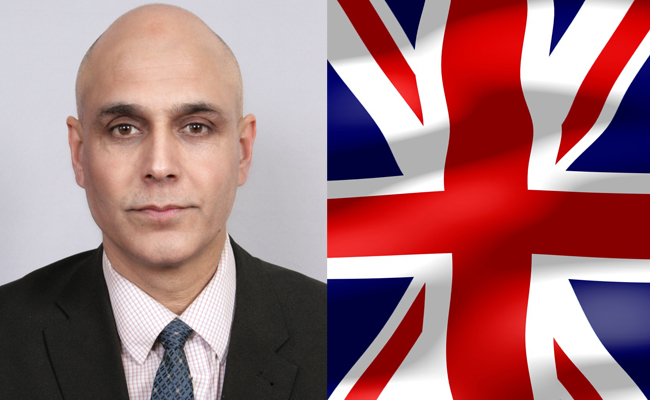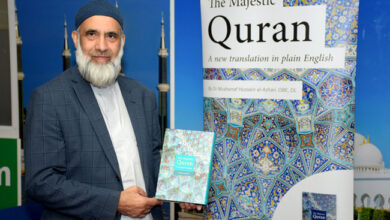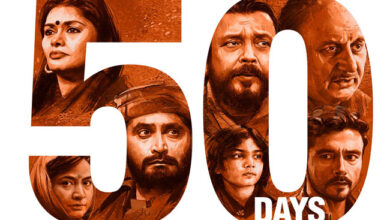Taking a Glance at “British Values”

Written By: Qasim Swati (United Kingdom)
British Values are some of the many assets, developed, built up and evolved, in the British society over a substantial period of time, which the British people are proud of. According to Ofsted (the Office for Standards in Education, Children’s Services and Skills, regulating and inspecting services that care for children and young people and services providing education and skills for those who learn, irrespective of their age), British Values are: democracy; the rule of law; individual liberty; mutual respect for and tolerance of those with different faiths and beliefs and for those without faith (https://www.doingsmsc.org.uk/british-values/).
Anyway, while promoting basic values and traditions of British society, Queen Elizabeth’s Grammar School, Ashbourne, Derbyshire, has highlighted five fundamental British Values, as democracy, individual liberty, the rule of law, mutual respect and tolerance of those with different beliefs and faiths.
‘Democracy’, as defined by Queen Elizabeth’s Grammar School, ‘can be seen as a state of society by equality of rights and privileges. It can also refer to British nation’s electoral systems.’ Individual Liberty has been referred to by the same school, as ‘the free exercise of rights, generally, seen as outside Government control.’ The Rule of Law is one of the fundamental values in British society where ‘All people and institutions are subject to and accountable to law that is fairly applied and enforced,’ as explained by the Queen Elizabeth’s Grammar School. Mutual Respect is another main British value, with the help of which the dignity of each individual is properly respected by others in the same society. Similarly, all those with opposite and different beliefs and faiths are tolerated and appropriately behaved towards by others by having ‘A fair, objective and permissive attitude to those whose faiths and beliefs may differ from one’s own,’ as structured in the policy of Queen Elizabeth’s Grammar School in order to promote, boost and enhance foundational or basic British Values. (https://www.queenelizabeths.derbyshire.sch.uk/PDF/Promoting-Fundamental-British-Values.pdf).
Values mean principles or standards of behaviour or one’s judgement of what is important in life. Values are also known as ethics, code of behaviour or rules of conduct. Broadly speaking, values are the beliefs people have, especially about what is most important in life, that control their behaviour. British Values are certain and specific beliefs, standards, principles or rules of conduct or behaviour, based on democracy, the rule of law, individual liberty, mutual respect and toleration or tolerance of those who have opposite beliefs and faiths to those of yours.
Democracy is the first and important part of British values, which means a system of government by the whole population or all the eligible members of a state, typically through elected representatives, or as defined by Cambridge English Dictionary, democracy is ‘the belief in freedom and equality between people, or a system of government based on this belief, in which power is either held by elected representatives or directly by the people themselves.’ In other words, it is a situation, system or organisation in which everyone has equal rights and opportunities, and can help make decisions. An American leader in social movements for non-violence, gay rights, socialism and civil rights (Bayard Rustin: 1912 – 1987) has shed some light on the significance of democracy in life, as ‘If we desire a society of peace, then, we cannot achieve such a society through violence. If we desire a society without discrimination, then, we must not discriminate against anyone in the process of building this society. If we desire a society that is democratic, then, democracy must become a means as well as an end.’ As a society, based on democratic values, all the British citizens are given equal rights by law and in practice as well. Their basic human rights are protected by the law, including individual liberty in the form of the rights to media access, association, speech and equal opportunities in all different walks of life.
The Rule of Law is another element of British values, considered as an essential pillar for the smooth, proper and successful function of the government system for the whole of the UK. The Rule of Law is the process of the restriction of the arbitrary exercise of power by subordinating it to well-defined and established laws. It has been referred to in the Dictionary.com, as ‘the principle that all people and institutions are subject to and accountable to law that is fairly applied and enforced or the principle of government by law.’ Nonetheless, the Rule of Law has been defined in the Merriam-Webster.com/Dictionary, as ‘a situation in which the laws of a country are obeyed by everyone.’
The third fundamental British value is referred to as ‘Individual Liberty’, which, according to Dictionary.com means ‘the liberty of an individual to exercise freely those rights, generally, accepted as being outside of government control.’ Individual liberty, as explained in the Merriam-Webster Dictionary, is ‘the liberty of those persons who are free from external restraint in the exercise of those rights which are considered to be outside the province of a government to control.’
The fourth main component of British values is ‘Mutual Respect’ which means a situation, feeling, or action that is experienced, felt or done by both or two people, in connection with respecting and considering each other. Cambridge English Dictionary has described the same circumstances, as ‘(of two or more people or groups) feeling the same emotion (respect), or doing the same thing (respecting each other) that is done or felt by all or both people in a group.’ The word ‘Mutual Respect’ has been defined by Kings-way Primary School, as ‘A feeling that something or someone is good, valuable or important, shared between two or more people. We believe that respecting the people who keep us safe is an important part of this value. We care for each other’s thoughts and feelings. We give respect to others and expect respect in return.’ (www.kingswayprimary.com/sites/default/files/Mutual%20Respect.pdf).
(Robert Michael MD – 2007 – Graduation Speaker, has given a crystal-clear picture of mutual respect in these words: ‘I don’t care if you’re black, white, straight, bisexual, gay, lesbian, short, tall, fat, skinny, rich or poor. If you’re nice to me, I’ll be nice to you. Simple as that.’ This is what a famous American author and a technical writer, R. G. Risch, has said about mutual ‘respect’, as ‘Respect is a two-way street,’ ‘if you want to get it, you have got to give it.’ Mutual respect should and can be built on the principle of ‘Give respect, take respect.’
Another principal principle, standard or rule of the British Values is ‘tolerance to those with different beliefs and faiths, which means having the ability or willingness to tolerate the existence of opinions or behaviours that one dislikes or disagrees with. Tolerance or toleration also means the willingness or capability to accept behaviour and beliefs that are different from your own, even if you disagree with or disapprove of them. In other words, tolerance is a state or condition of mind to be ready and pleased to accept behaviour and beliefs that are different from your own, although you might not agree with or approve of it.
The British society is a society where there is no place or room for disrespecting or discriminating against another person on the basis of such characteristics, as age, disability, gender reassignment, marital status, pregnancy or maternity, race, religion or belief and sex or gender. That is why the government of the United Kingdom has passed the Equality Act 2010, in order to protect certain characteristics, including gender or sex; beliefs or religion; race; maternity and pregnancy; marriage or civil partnership; gender reassignment; disability and age.
As a result of tolerating those having opposite or different faiths and beliefs in the British society, no one is allowed to say or do something against the religion, belief or ideology of another person. The different religions, existing in the British society, include Judaism, Christianity, Islam, Buddhism, Hinduism, Sikhism and even atheism (disbelief or lack of belief in the existence of God or gods) where the people believe in no specific religion or belief, etc. Despite the fact that the UK population is a mixture of people coming from different religious backgrounds, no discrimination is done against any specific religious community in the British society and the authorities, throughout the country, do their best to treat all the people in the United Kingdom equally and without any discrimination.
All the Jews, the Christians, the Muslims, the Buddhists, the Hindus and the Sikhs, residing in the country, are allowed to practise and observe their religious activities freely and without any fear or danger from any individual, organisation or the government itself. They are free to go to their synagogues, churches, mosques, Buddhist temples (including vihara, stupa, wat and pagoda), Hindu temples and Sikh gurdwaras. Similarly, all the various religious festivals, including Hanukkah/Chanukah, Diwali or Deepavali/Dipavali, Christmas Day, Boxing Day, Easter, Eid al – Fitr, Eid al – Adha, Nowruz or the Iranian New Year’s Day/the Persian New Year and the Chinese New Year, etc., are allowed or permitted to be celebrated freely, openly/publicly and peacefully across the UK.
Qasim Swati is a freelance journalist, writer and human rights activist, based in the UK, and can be reached at: https://qasimswati.com or qasimswati2003@yahoo.co.uk.





